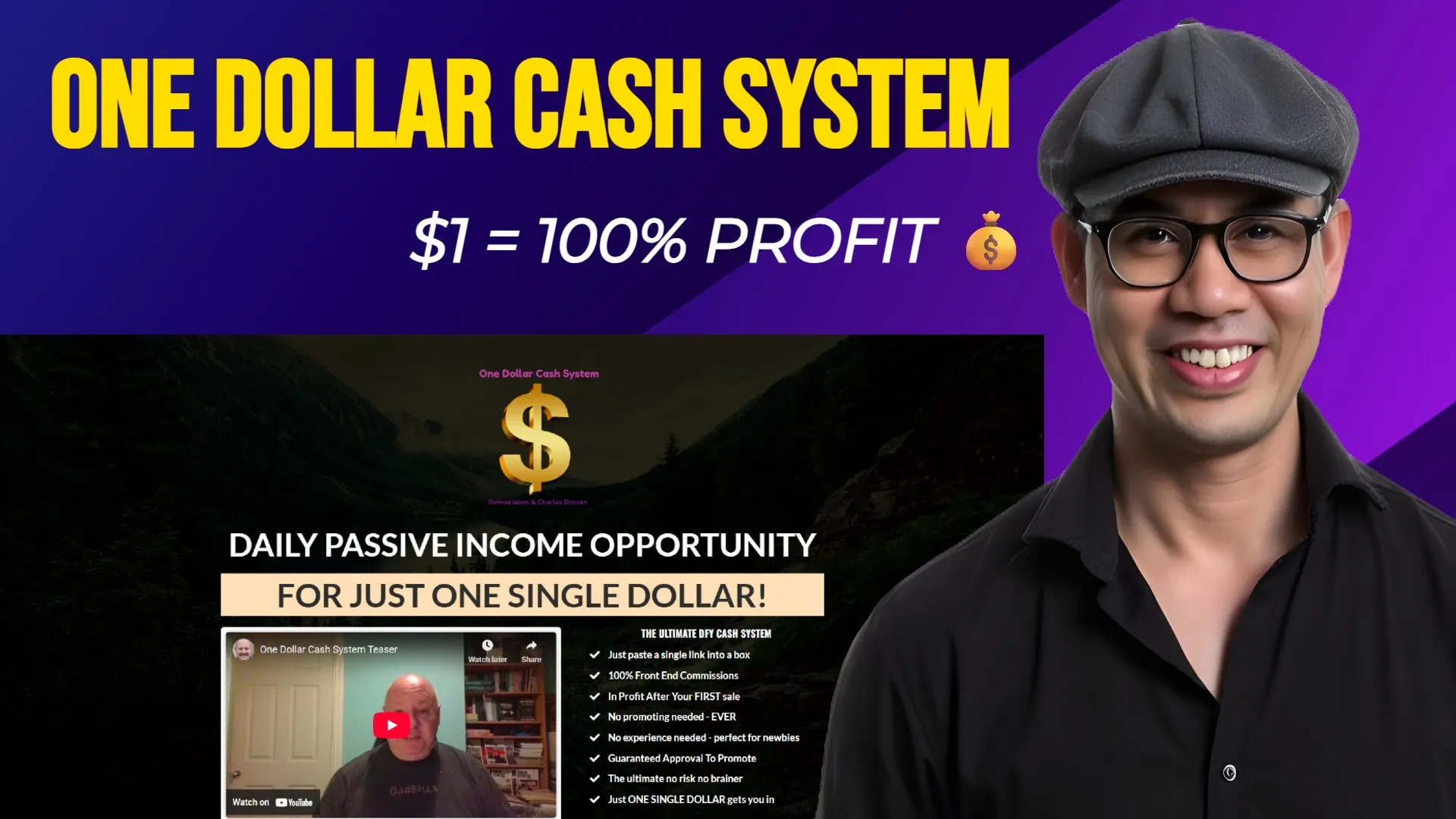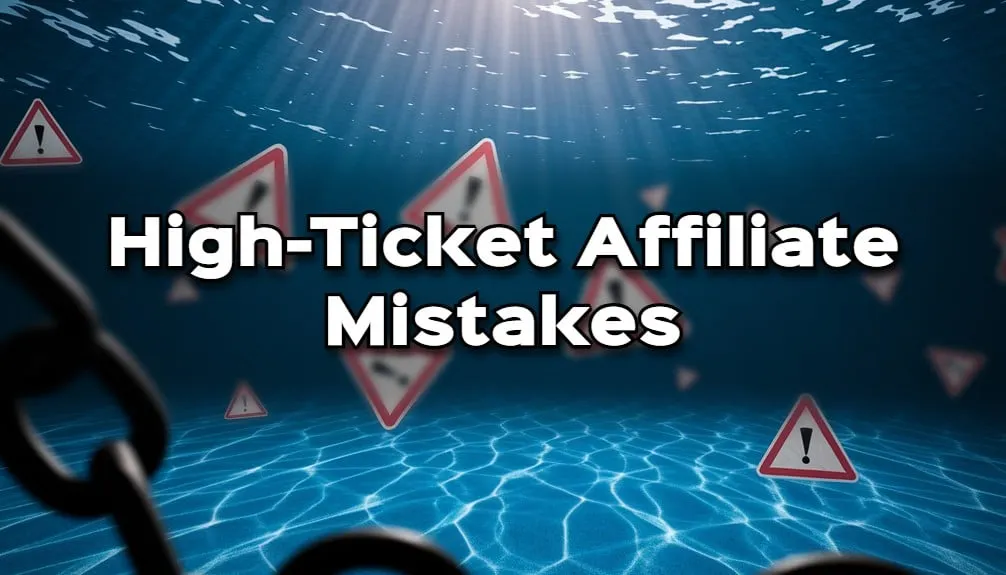The Search Engine Traffic Blueprint (SEO for 2025)
Here's how to get more visitors to your site using search engine optimization (SEO).

Yes, SEO still works in the world of AI, even after the huge helpful content update. You just need to create more valuable content, or place your content on well trusted websites.
When people search for stuff online, they go to places like Google, Bing, Yahoo, Youtube, or even Pinterest.
Today, we'll be going over something called "keywords".
You might have heard of people stuffing a bunch of keywords into their web page just to show up in Google.
In the late '90s, you could easily get ranked for many words and phrases that didn't even relate to your web page. I know...I used to use that tactic when I was trying to rank my old DVD niche site.
While you can get some traffic by doing that, I would refrain from using that tactic nowadays.
Those words and phrases that people want to rank for are typically called "keywords".
The Easiest Way to Get on the 1st Page
When you're on page one, your chances of getting visitors is greater than being on page 100. The same thing goes for the position. When you're at the top (#1 position), your chances of getting traffic are better than being closer to position #100.
So how do you easily get to #1?
The first step is to rank for keywords that have low competition.
Don't just pick any keyword with low competition!
You'll want to make sure that those keywords have enough demand and are worth your time. Some keywords lead to sales and some don't.
Through experience (ie. testing and tracking), you'll get a good idea of what works and what doesn't.
How to Find Keywords with Low Competition
There are many ways to find keywords online. What's great is that there are tools that allow you to find many keywords that people type into Google.
Plus, you'll be able to find out how many times people search for them and a bunch of other cool stuff like the trends throughout the year.
In the past, I used to use Google's Keyword Planner tool. You can get free access to it if you sign up for a Google Ads account.
While it's a great tool, it doesn't have as much automation as the free version of SEO PowerSuite has for keyword research. Since this tool is built for webmasters that want to rank their websites in the search engines, the free version comes with a lot of free tools that you can use. A major drawback of the free version is that it doesn't allow you to save projects, but neither does Google's free tool.
Once you click on the link to access it, just type a keyword related to your website.
Let's try to search for the keyword: WordPress hosting.
The question is, can you rank for it without much effort?
The first thing that I would do is go to Google and search for the word to see how much competition is out there.
My last search revealed over 270 million results. This type of search is called "broad match".
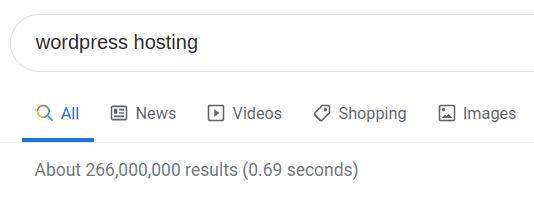
Search Using Broad Match
The next step is to search for the keyword using the exact match. That means I'm going to search for it with quotes around it like this: "WordPress hosting."
Doing that, I see over 5 million results.
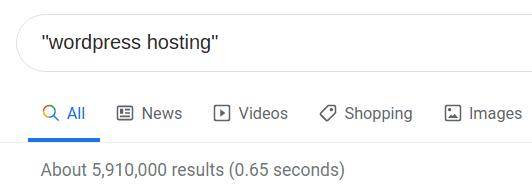
Google Search Using Exact Match
So to answer the question, is it easy for a beginner to rank that keyword fast?
Not really. An easy keyword would have less than 40,000 results using exact match AND less than 300,000 using broad match.
However, with all of that said, you can get to number 1 with any keyword. It's just a matter of how much time and/or money you want to put into the whole process.
If you're able to identify keywords that have high demand and low competition, then it will be easier for you to rank and you'll see results faster too!
If you can't find those types of keywords, then an alternate approach would be to rank a bunch of low to medium demand keywords that are related to your niche.
Let’s say that your goal is to get 10,000 visitors a month. What if you had 100 high-quality content pages on your website, each getting 3-4 visitors a day? 3-4 visitors per page doesn’t seem like much, but that all adds up to 10,000 visitors a month. If your content is really good, then there's a chance that traffic will continue to grow over time.
Picking the Right Keywords
A lot of people just want traffic to their site. However, not all keywords convert to traffic that produces profits.
That's why I'm going to go over something called "search intent".
Several years ago I was marketing a site to get insurance leads in a city that I used to live in - Tracy, CA.
I didn't know much about Google Adwords (now called "Google Ads") back in the early 2000s...so what I did was I placed my site on Google Adwords and used keywords like "New York Life" and "Prudential" (when it was easy to do so back then). Those are popular insurance companies here in the U.S.
While those keywords are related to insurance, they are not extremely targeted (and they sure were expensive).
If a person is looking for New York Life insurance, they want to see a page about it...not just a generic insurance quote page.
While that was in Adwords (pay-per-click ads), you'll want to use a similar concept when doing SEO (aka search engine optimization).
The message you want people to see must match the market!
So pick targeted keywords and create content that is totally related to those keywords.
You can always use an indirect strategy as long as you create a good transition in your content to where you want your visitors to go (ie. there has to be a benefit that matches what they want).
Creating High-Quality Content That Pulls in Traffic
If you're using the search engines to get traffic, you'll want to create content that relates to the keyword that you want to rank for.
You'll also want to let the search engines easily know what your content is about.

Brainstorm for New Ideas
How do you do this?
1st, you can create a killer 3-15 page article with high-quality content that revolves around your keyword.
2nd, you can create an article title that includes all or part of the keyword that you want to rank for.
3rd, you can include other keywords that relate to your primary keyword that you want to rank.
For example, if you are promoting an email marketing system, let's say Aweber, you'll want to include keywords like:
- autoresponder review
- best autoresponder
- high deliverability rate
- email marketing
- marketing automation
- lead generation
- the names of the owners of the company
- and of course, Aweber - the company name
Those are just some ideas from the top of my head.
If you want to get ideas from Google, simply start typing into the search bar and you'll see what Google suggests:
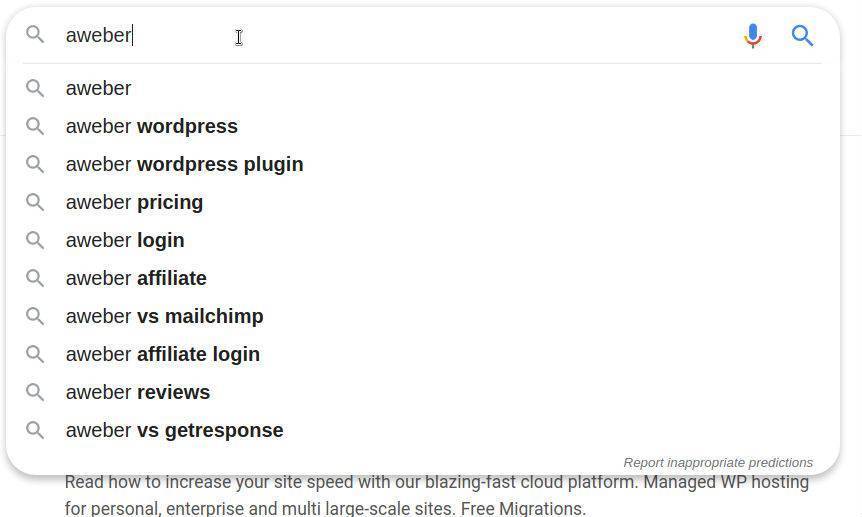
Brainstorm: Use Google's Autocomplete Feature to Get Suggestions
If you're using SEO Powersuite, you can use the Rank Tracker tool within it to get Google Autocomplete keywords. Using the same keyword, I was able to find 222 suggestions. In addition to the number of searches, SEO PowerSuite also provides keyword difficulty and many other columns that you can switch on.
![]()
Suggestion from SEO Powersuite's Rank Tracker Autocomplete Tool
You can also have pages related to the individual benefits, products and/or services.
4th, you can include the keyword close to the beginning and end of the content.
5th, you can make sure that the primary keyword shows up 1-3 times in every 100 words of content.
Those are just some on-page SEO strategies that you can use to rank your page in the search engines.
So What is a Backlink?
It's pretty much a hyperlink (aka a link) that links from 1 page to another. In this case, it is a link that links to the page that you wish to increase the rankings for in the search engines.
Why Are Links Important?
In the search engines eyes, each link counts as a vote that boosts up the rankings of a page.
In the past, it used to be all about link quantity. Now, it's link quality and relevance are huge ranking factors.
A popular example in the past was for the keyword "click here."
At the time, Adobe Reader was ranked #1.
That's because tons of pages were linking to the page using the link text (aka anchor text) "click here".
This is no longer the case. Google is looking for backlinks that look natural and that are from relevant websites. While there are many factors, I'll make sure that you have a simple blueprint by the end of this article.
So Can't You Just Buys Tons of Links to Boost Up Rankings?
Yes, but it's a bad idea and it's against Google's Terms of Service (TOS). So if you're planning to build a website for the long-term, I would stay away from buying links or even building out websites that link to the page that you want to rank. These websites that emulate 3rd-party websites are referred to as "Private Blog Networks" (PBN's).
Check Your Competitors Backlinks
If you're competing against another page, you'll want to see how many backlinks they have. An easy way to do this is to use this tool. It will show you backlinks and a lot of useful information for outranking your competitors. Using this tool, I can also see the "Penalty Risk" column which helps flag sites that are risky to link from. If backlinks come from spammy websites, that can lead to negative results or penalties which will lower your rankings in the search engines. So the lower the penalty risk, the better.
In the screenshot below, I searched for a web page that ranked on the 1st page of Google for the keyword "Aweber."
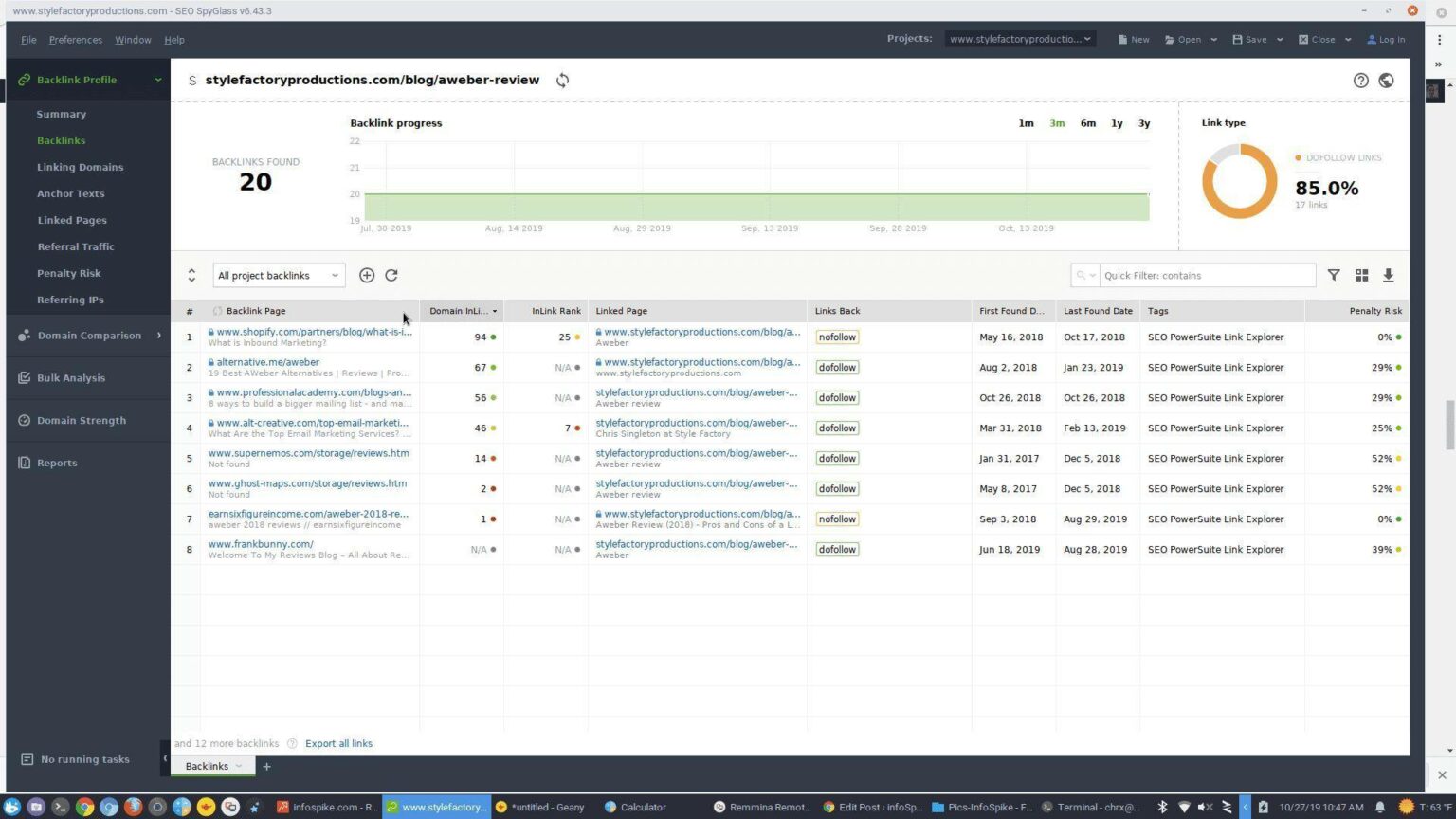
Suggestion from SEO Powersuite's SEO SpyGlass Backlink Checker
I was curious about the page that had a 52% penalty risk. So I went to the page and it was filled only with links to a different domain. I could see why SEO Powersuite gave such a high penalty risk percentage as this doesn't look like a legit web page. It looks like it was created for the sole purpose of creating backlinks, which isn't what the search engines want. This would be considered a Black Hat SEO strategy. If you're trying to rank for the long-term, focus on organic White Hat SEO which is what I'm teaching here.
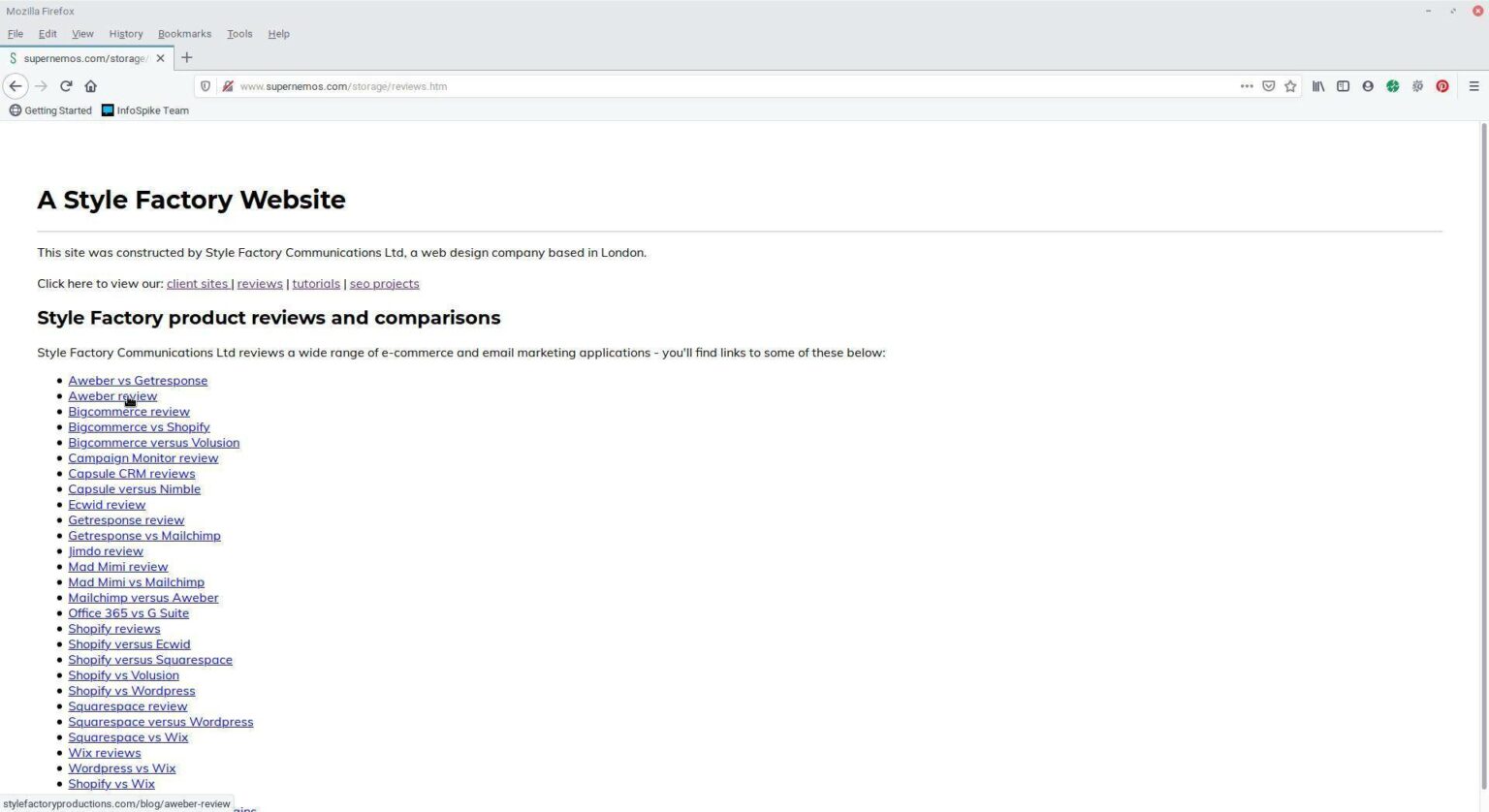
SEO SpyGlass' Penalty Risk Feature Shows You Sites to Stay Away From
Analyzing the Competition
Let's say that 1 keyword you want to rank for has 1000 backlinks going towards a competing page.
The second competing page for keyword # 2 has 10 backlinks.
Let's say that the quality of those backlinks was low...meaning that they weren't coming from popular, relevant pages.
Looking at this, you would go after the low hanging fruit, the page that only had 10 backlinks. This would mean that you would possibly need 10 or more backlinks to outrank that competing page.
Don't take this lightly - many hours a week are spent on building backlinks for pages that I want to rank.
Notice, I've been going over ranking "pages" and not websites. That's because pages are ranked, not whole websites. With that being said, your domain increase in authority to help rank these internal pages. This authority is also known as Domain Authority (DA).
5 Steps to Boost Your Rankings
In this section, I'll provide an overview and also some answers to some critical SEO questions.
Step 1) Think about keywords and ideas that are related to your target market.
Step 2) Use a keyword tool to find keywords with a medium to high demand and ones that you are willing to compete for.
Step 3) Create high-quality content related to keywords you wish to rank.
Step 4) Analyze the backlinks of competing pages.
Step 5) The next step is to beat your competition by getting a similar amount of relevant backlinks from high quality websites.
As you create enough backlinks to your pages over time so that you climb up the search engine results pages (SERPS).
Let's Go Over Some Q and A

Question 1) How do I easily create content?
Answer 1) Read books and articles about your niche. Pretty much, become an expert in your niche by learning more about it. You can buy education materials or even visit your local library. That's how I got started building virtual real estate (VRE) websites.
Question 2) How do I easily create backlinks to my web pages?
Answer 2) One of the easiest ways is by contacting relevant blog owners and asking them to share your blog post with others that might be interested. Simply visit their websites, look for their contact us page, and start the conversation by sending them a message. Think of this outreach strategy like meeting somebody offline in real life. How can you can create a win-win situation? If the webmaster has a resource page, is your blog post worthy of being on that page? If you've created high-quality content that beats your competitors content, you've improved your chances of webmasters sharing it.
SEO PowerSuite has a backlink and outreach tool called Link Assistant that allows me to easily find sites to link from using a wide variety of strategies like guest posting, getting backlinks from link / resource pages, and pages to link to my competitors. It's great for high-quality white hat outreach. So if you're thinking about doing spam links or a shotgun email approach where you send thousands of cold emails to a cold audience, this isn't the right tool.
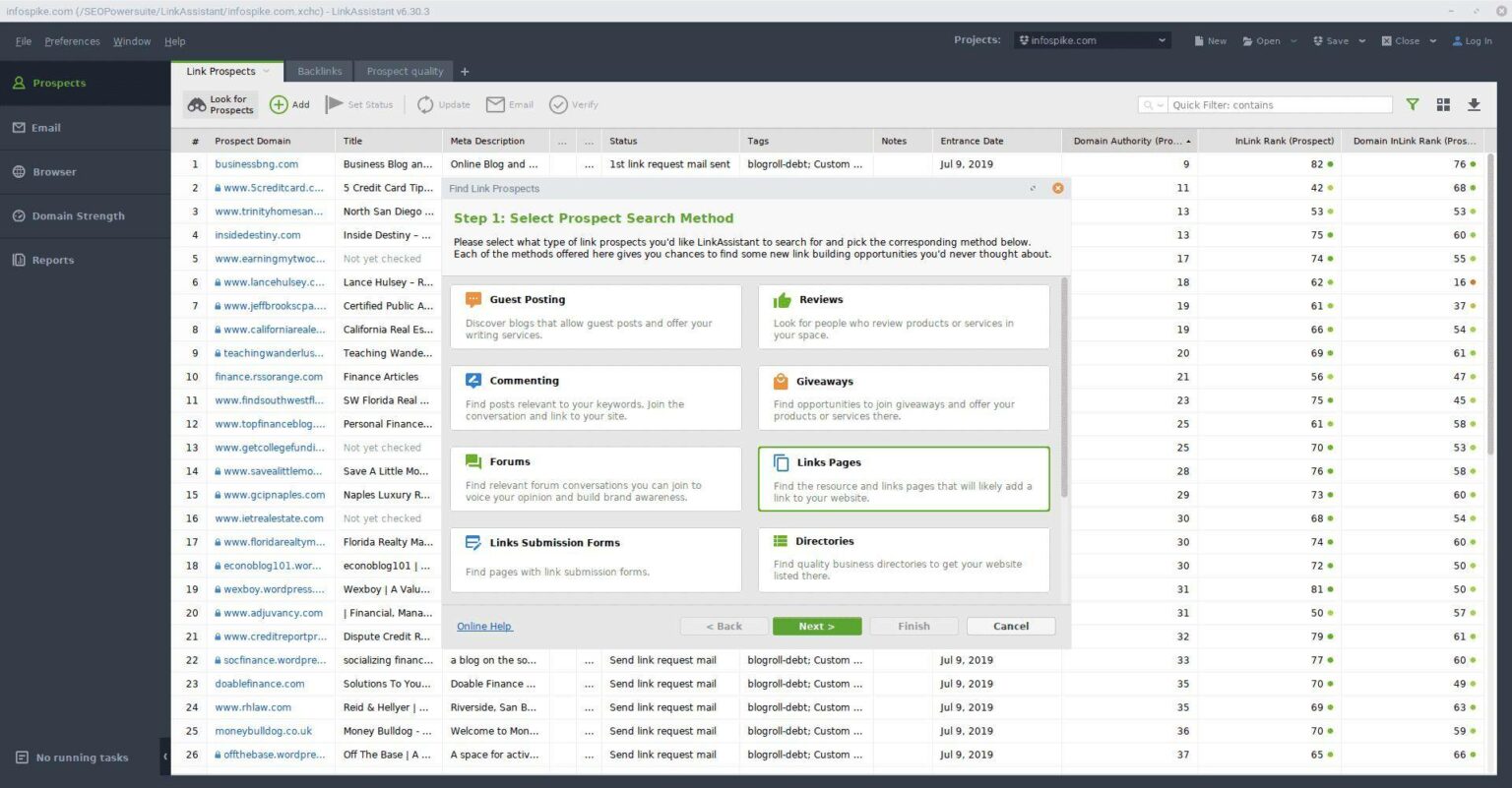
SEO PowerSuite - Link Assistant Backlink and Outreach Tool
Question 3) How do I get hundreds or thousands of visitors using these strategies?
Answer 3) One way is through scale. If you know how to get 10 visitors a day to your web page, then you can increase that by ranking more keywords, getting a higher position, or ranking keywords with higher demand. Just by doing that, you'll know what it takes to get from 10 to 50, then 50 to 100, then 100 to 1000. All of this is doable and it's just a matter of time, money and the actions that you take.
Question 4) Is there a more efficient way to find keywords that I can easily rank for?
Answer 4) The keyword tool offered by Google is a free tool and the functions are pretty basic. One of the best premium tools that I've used can be found is called SEO Powersuite. It's more affordable than tools like Ahrefs and Moz Pro and produces excellent results. This tool drastically cuts down on the amount of time finding keywords that you can easily rank for. If you want to give it a try, there is a free trial for SEO Powersuite that works on Windows, Mac OSX, and Linux.
Question 5) If there was one piece of advice that you can give in regards to SEO, what would it be?
Answer 5) We all know that people would like to find unique, useful content on the search engines. As far as SEO goes, follow the laws of nature. This applies to many areas of site building. People will gravitate to killer content that provides solutions to their problems. Backlinks that are earned through your own efforts vs buying looks are natural. People that visit your website because of the authority that you've built is organic. All of this has randomness and it's the result of organic, white hat SEO.
Question 6) Is there a way to track my rankings over time for multiple keywords?
Answer 6) The premium tool that I mentioned has a rank checking system that allows you to manage multiple keywords and rankings historically.
You'll find some great training videos on the SEO Powersuite site.
They'll show you how to get more traffic with less effort.
Question 7) Where can I post my content?
Answer 7) I recommend creating your own blog. If you want a platform with great flexibility, then I would recommend SiteGround WordPress hosting. If you want a simple and easy to manage platform, you can use the same platform that I use here at infoSpike. You can build 1 free blog by registering for an account here.



